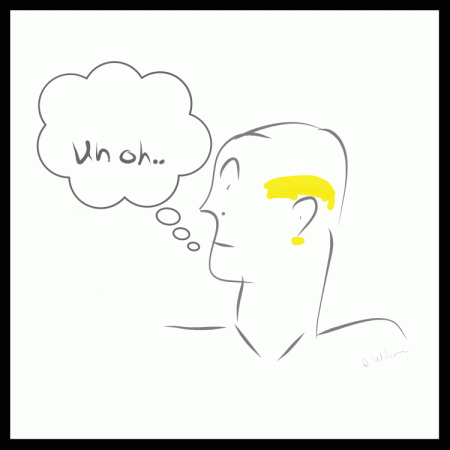Of late I have become quite fascinated by the big toe or rather the points on the big toe which relate to the Limbic Brain. The Limbic Brain is that part of the brain which in simplest terms detects danger and protects us from it. ‘Danger’ can be what’s inside us or what’s around us. More fascinating still is the fact that parts of our Limbic Brain record, store and retrieve memories of events and experiences whilst another part helps to set the pitch of our mental and emotional response. So our Limbic Brain is capable of flicking through stores and stores of data so that in a heartbeat we can register whether something makes us feel good or feel bad and while it is flicking through a data bank to help us recall whether something is good or bad it is also influencing the level at which we experience those feelings. Because of this every single person is ‘set’ in a different way, our experience of pain, anxiety, joy and melancholy are all different and believe it or not even as we are being born our Limbic Brain is busily registering and recording data. This particular memory bank is in it for the long haul so things like separation anxiety or a preference for quiet, calm spaces can figure in our make up from babyhood into old age.
For some of us all of this work by the Limbic Brain is mostly off our radar but for others it can make for example pain more chronic, depression more acute, anxiety more pronounced or gratification always beyond reach. Some of the conditions in which the Limbic Brain is thought to be a player are:
Depression and Major Depression
Chronic Pain
PTSD
ASD
Stress
ADHD
Anxiety
ME
Fibromyalgia
Panic Attacks
OCD {where anxiety is a major feature}
Parkinsons
Sleep Disorders
And more generally it is involved in the regulation of lots of social behaviours such as problem solving, the ability to take on board information and learn from it, the ability to exercise self control and the ability to feel empathy.
Why this is of particular interest to me as a Reflexologist is that while I am referencing conditions of imbalance and behaviours which help us feel in step with the world around us, I am also very aware that the Limbic Brain is at the center of a process called Homeostasis. Homeostasis is our very own perfect state of balance, a balance which allows us to experience optimum physical, mental and emotional well being.
In Reflexology the brain and Central Nervous System are usually worked in the course of a general treatment and are emphasized for all of the conditions mentioned above. Introducing the Limbic points on the big toe {there are 26} allows the practitioner to bring a deeper level of intention to the treatment. If acute stress is the problem, we can give attention to the limbic point which helps regulate the stress response or if chronic pain is the problem we can give attention to the Limbic point which regulates the body’s ability to cope with pain.
As a Therapist I want to do my absolute best for my clients, when someone is at a low ebb it is always important to provide relaxation, reassurance and care but the next step is to recognise that person as a prompt to keep learning and to explore new techniques which could help them and others.
Reflexology works wonderfully alongside conventional medicine and often provides the extra level needed to help the body not only cope with imbalance but to start to heal from it. Moreover in a world were we are often made to feel to blame for our own ill health it is reassuring to know that your Reflexologist wants to place you in position of power, a state of knowing yourself that little bit better and therefore being able to take back control of your health.
If this blog is of interest to you please don’t hesitate to get in touch with any questions. If you think it may help someone else then please don’t hesitate to pass it on x

